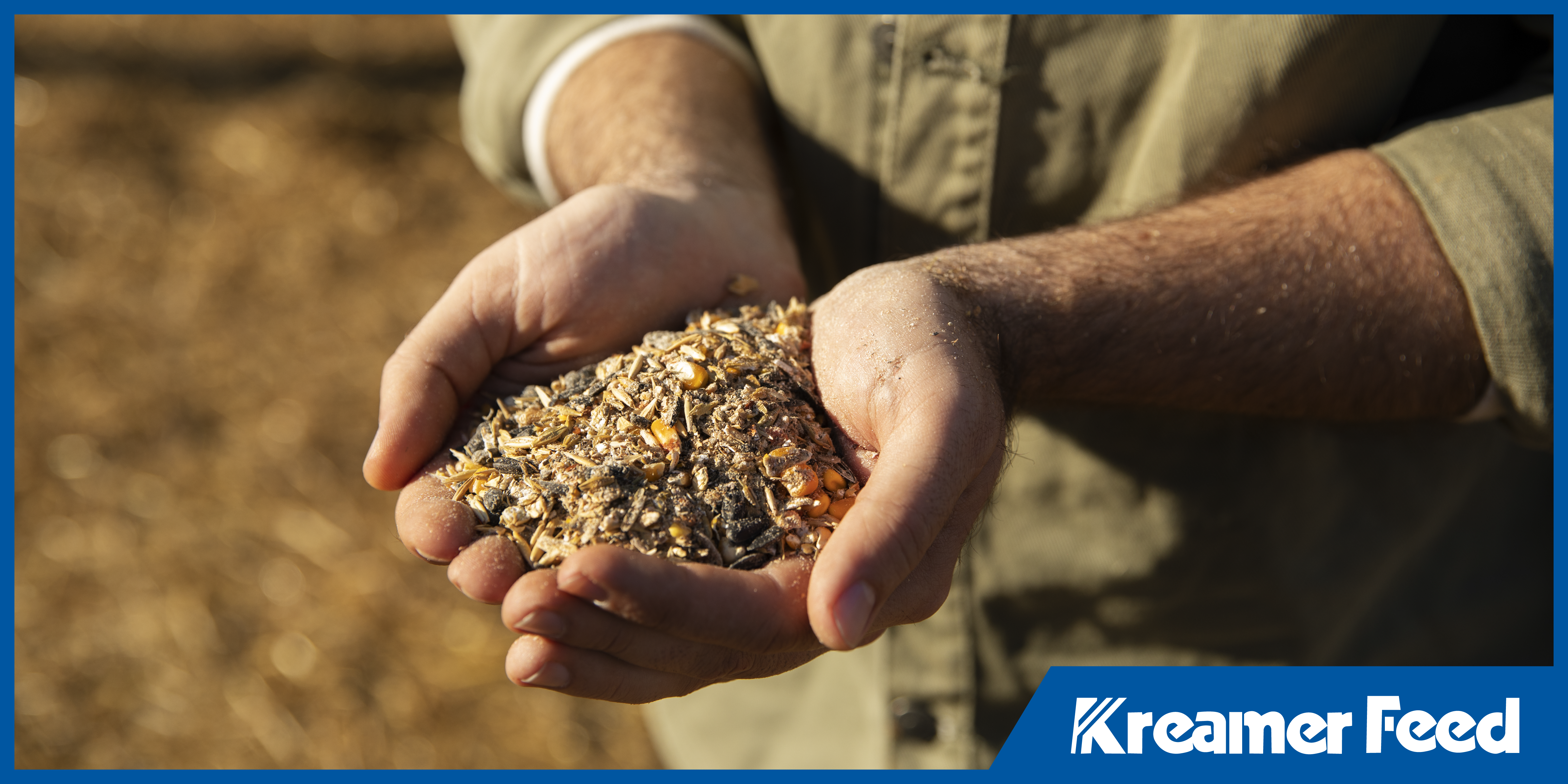
When it comes to high-performance animal feed, the nutritional formula often gets most of the attention. But how that feed is processed, shaped, and delivered can make just as much of a difference. Animal feed pellet quality plays a crucial role in feed intake, digestibility, and overall efficiency.
At Kreamer Feed, we’ve been crafting consistent, dependable feed since 1947. As a family-owned and operated company, we understand that pellet performance isn’t just about durability. It is also about how animals interact with the feed every day. From pellet size and shape in animal feed to hardness and durability, every detail matters.
Here’s why pellet quality matters and how to choose the right pellet for your livestock or poultry operation.
Why Pellet Quality Affects Feed Intake
Animals don’t just need feed that’s nutritious. They need feed that’s easy to consume. Poor-quality pellets that crumble too quickly or are too hard to chew can lead to reduced feed intake, increased waste, and slower growth.
How pellet quality affects animal intake involves several factors:
- Palatability: Animals are more likely to eat feed that is uniform, consistent, and easy to handle.
- Digestibility: Uniform pellet size helps with digestion by reducing sorting behavior and encouraging even consumption.
- Feed waste: Crumbling pellets or excessive fines in the feeder lead to more waste, which reduces feeding efficiency.
- Animal comfort: Feed that’s too hard or too large can cause discomfort, especially in younger animals.
Good pellet quality supports better livestock feed efficiency, reduces feed loss, and improves growth and productivity.
Pellet Size and Shape: What’s Optimal?
Pellet size and shape in animal feed must match the animal’s age, species, and mouth size. One of the most important factors is ease of consumption. If pellets are too large, animals may struggle to eat them. If too small, they might be wasted or ignored.
- Optimal pellet size for poultry (especially chicks and layers) is typically between 2 and 4 mm in diameter, depending on age. Crumbles or mini-pellets are ideal for young birds.
- Best pellet size for livestock varies. For swine, 3 to 5 mm is common, while cattle may require larger pellets depending on the ration and feed delivery method.
In all cases, consistency in pellet size helps reduce sorting, encourages even intake, and supports healthy growth.
Durability and Hardness: Getting the Balance Right
Feed pellet durability refers to how well a pellet holds its shape during transport, storage, and feeding. Livestock feed pellet durability is important for reducing fines, maintaining nutritional value, and minimizing waste.
However, excessive feed pellet hardness can cause problems. Extremely hard pellets may be difficult for young animals or poultry to break down, especially without access to grit.
At Kreamer Feed, we focus on achieving the ideal balance. Pellets should be durable enough to reduce fines yet soft enough to encourage good consumption and digestion. Our manufacturing process includes careful control of moisture, temperature, and pressure to produce high-integrity pellets that deliver consistent results.
The Role of Animal Feed Processing Quality
Animal feed processing quality directly influences pellet shape, hardness, and durability. Everything from ingredient grind size to pellet press calibration contributes to the final product.
At Kreamer Feed, our in-house quality control measures and experienced production team ensure that each batch meets our strict standards. We work closely with local growers to source clean, consistent ingredients and use precision equipment to maintain uniform pellet structure and density.
This level of control supports improved feed conversion, healthier animals, and dependable results across every species.
Strong Pellets. Strong Performance.
The right pellet can make all the difference. With the right shape, size, and durability, you can improve feed intake, reduce waste, and support healthier animals.
Visit KreamerFeed.com to learn more about our organic, non-GMO, and conventional feed options. At Kreamer Feed, we know pellets, and we know your animals deserve the best.